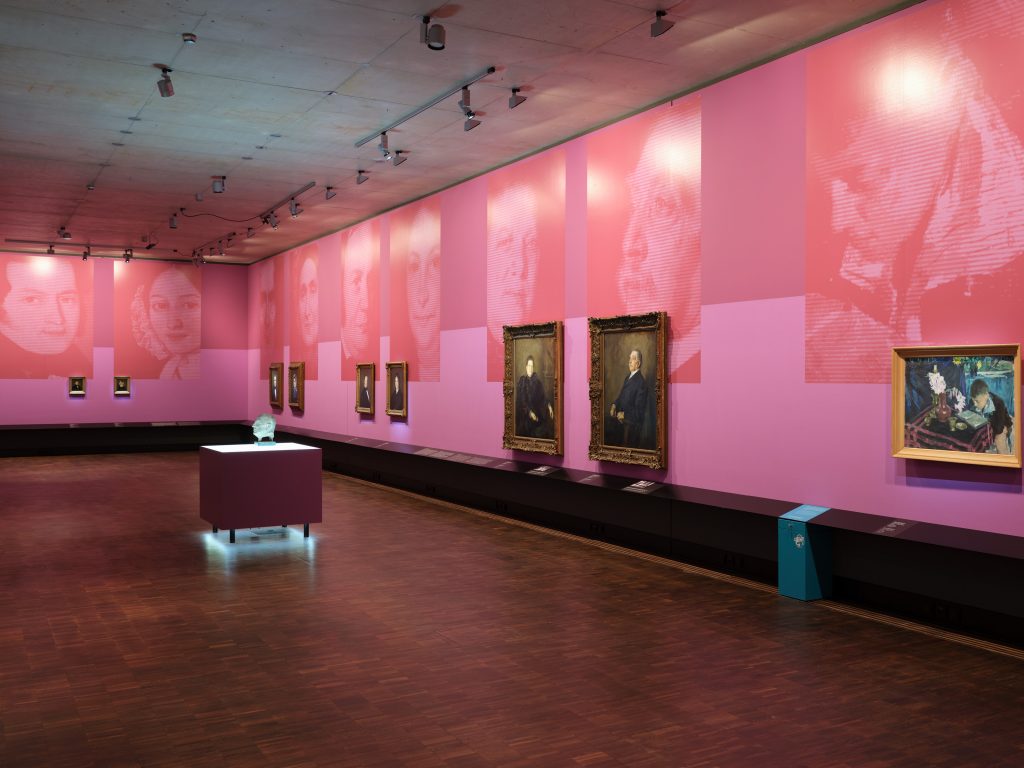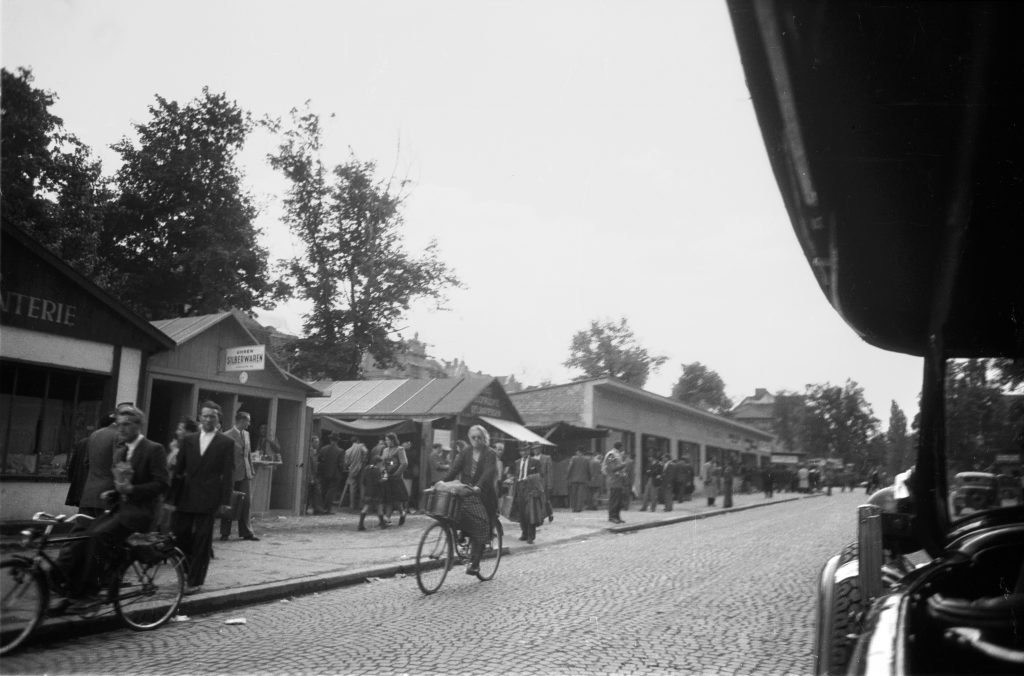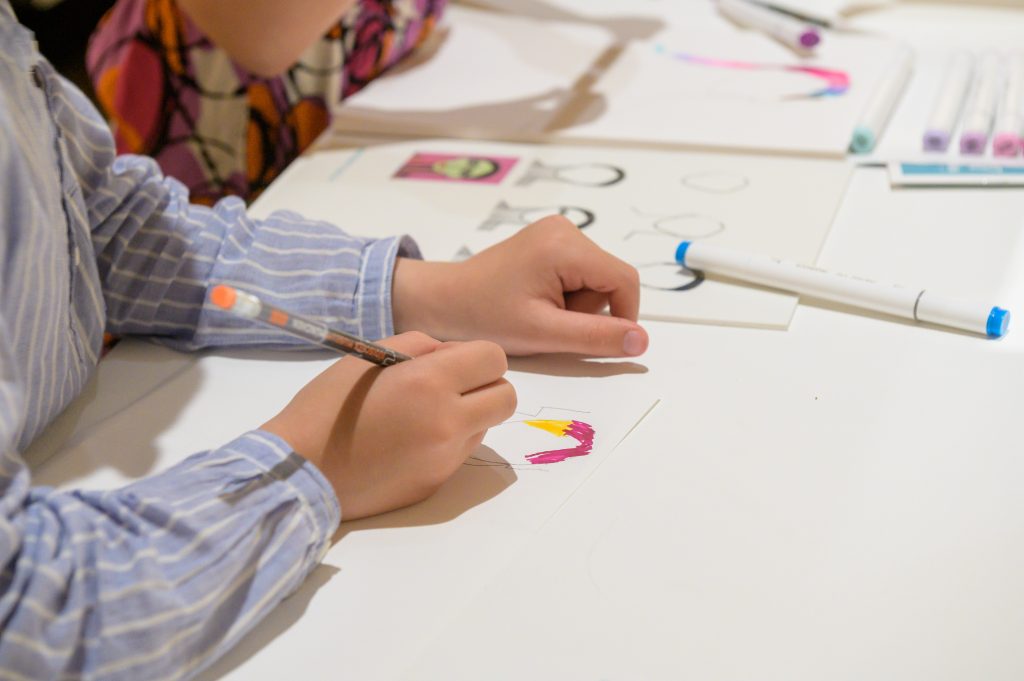The Jewish Museum Munich is very active, organizing many events throughout the year and responding to many needs, providing for example a German sign language tour. Here’s our interview with Sapir von Abel, Curator of Education at the Jewish Museum Munich, concerning some of those events, for the upcoming EDJC as well as next year’s “80 years after World War II” exhibitions.

Which events will be organized this year for the EDJC?
Sapir von Abel: At the Jewish Museum Munich, we offer a range of activities for this year’s European Days of Jewish Culture (EDJC), combining aspects of our local history, efforts of inclusion and of course this year’s theme “family”. At this day, the admission is free and so are all the activities.
During this year’s EDJC there are multiple opportunities to enjoy a guided tour through the current exhibition “Picture Stories. Portraits of Munich Jews”. The exhibition opens a unique perspective on a variety of Jewish biographies, especially from the 19th century and onward. About 40 fascinating portraits and their biographical stories are exhibited and show the multiplicity of Jewish identities throughout history. The visitor also learns about their contributions to municipal society as well as the long path to emancipation and the struggle of the Jews in Munich to be accepted from their Christian peers.
We offer a tour especially for children at 11 am, a tour with simultaneous translation into German Sign Language at 1:30 pm and a regular tour through the exhibition at 4 pm. There will also be a guided tour through the permanent exhibition which focuses on Jewish history, religion, and culture in Munich in past and present at 3 pm.
A city walk through the Bogenhausen district with its unique post World War II history will be held at 11 pm. Here is some information about the special tours:
The neighbourhood Bogenhausen symbolizes the post-war period in Munich like almost no other place. Many offices, cultural and religious institutions that catered towards the Jewish Displaced Persons needs were established here. In a short period of time the district developed itself as an important social, economic, and political center for the Jewish Displaced Persons that were residing in so-called DP-Camps in the surroundings of Munich. Up until a few years ago the DP history of Munich was unknown. Last year the Museum presented a large-scale exhibition with new objects and addresses from that time. During the tour we also want to address the question of visibility and remembrance in the urban space. (11-12:30 pm)
In the tour “Schau hin! Bilder erzählen Geschichten”, for visitors aged 8 years and above, we explore the exhibition in a playful way. Equipped with a booklet and a pencil we ask ourselves what the portraits in the exhibition tell us about how people used to live in Munich, what fashions were popular and what professions they pursued.
Together we will set off on a search for clues inside the portraits that cannot be discovered at first glance and solve small tasks that are scattered throughout the exhibition. (11-12 pm)

Can you tell us a bit more about that original tour in German sign language organized?
It is important for us, as a city operated museum, to provide inclusive access to our facilities. We are aware that this is a long-term process with many different needs and we are obliged to learn and adapt to it as an integral cause to our work in a museum. As an institution, we are committed to this cause and are happy to announce that for the next two years there will be a new position that is solely committed to the inclusive opening of our institution.
Throughout the past years we have offered tours with simultaneous translation for our current exhibitions and important events. We are grateful for the trust the deaf community has put in us and look forward to the continuous relationship.

Which other events are scheduled for 2024-5?
For the calendar year 2024 we are currently planning a variety of events related to the current exhibition. We are also planning to participate at the “Lange Nacht der Museen”, a city-wide event where a lot of cultural and educational institutions open their doors until midnight and beyond. It will be held in October.
As we are currently also going through constructions, we are excited to hopefully present our new workshop and educational room to the public in autumn of this year.
With the important historical event “80 years after World War II” happening next year, we are already planning insightful events and collaborations with other institutions in the city of Munich.